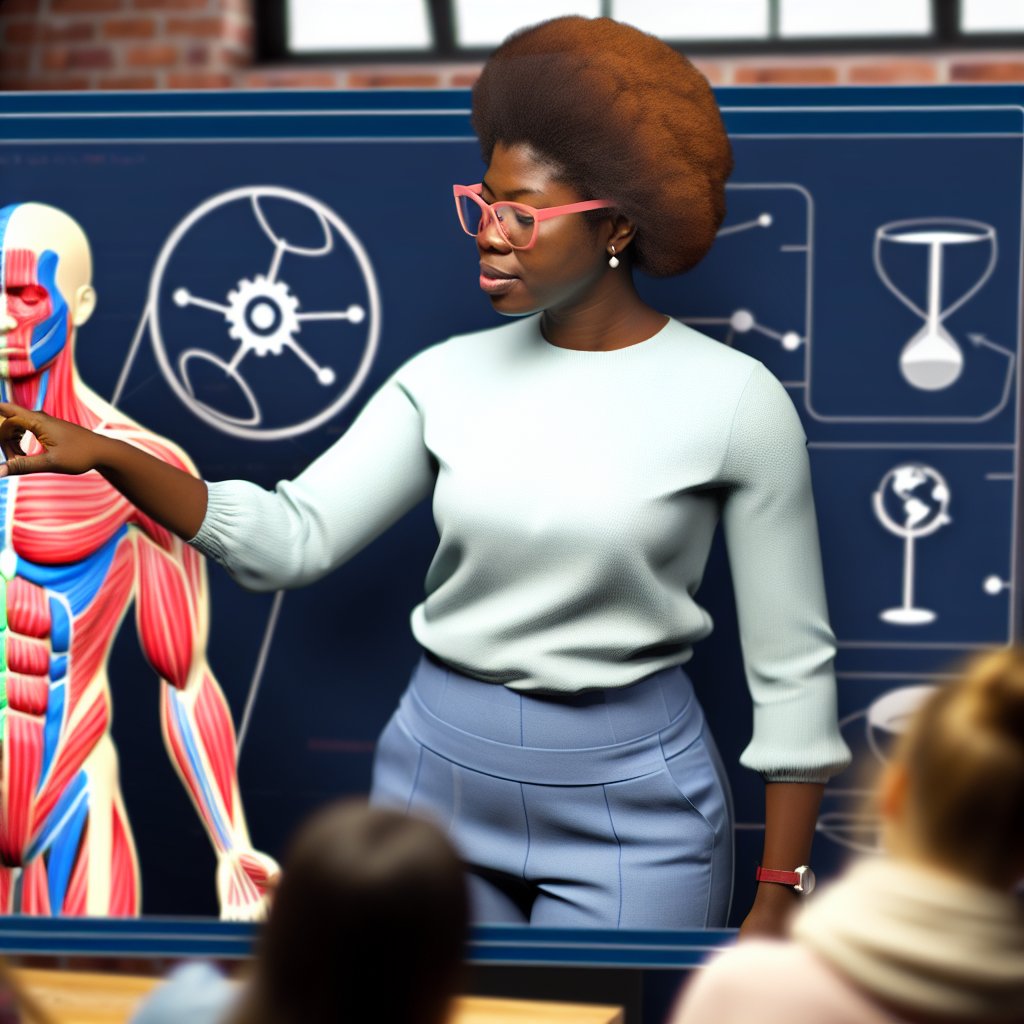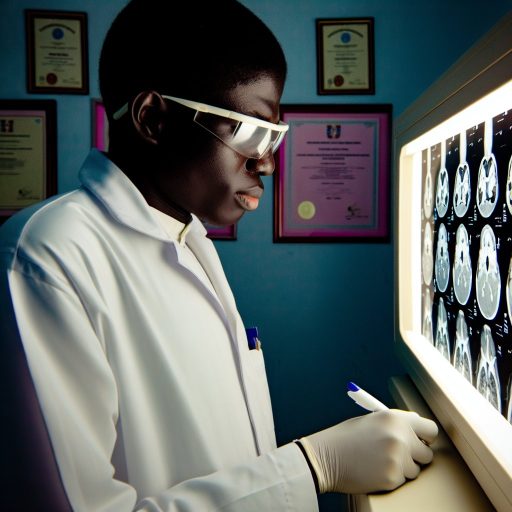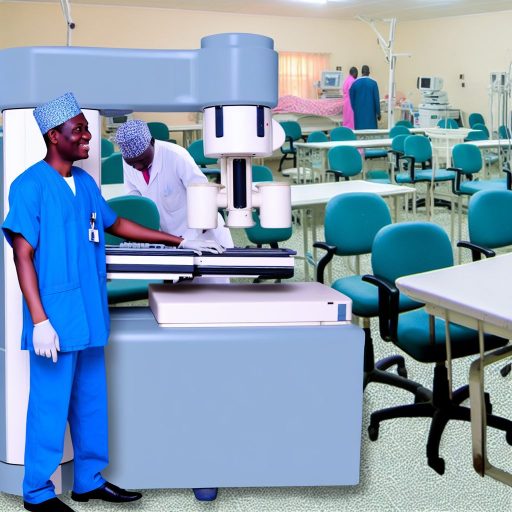Introduction:
Technology plays a crucial role in physiology education by enhancing learning methods and understanding complex concepts effectively.
Today, students have access to interactive simulations, virtual labs, and digital resources that revolutionize traditional teaching approaches.
Enhancing Learning Experience:
Technology such as virtual simulations can provide a realistic environment for students to practice physiological concepts.
Interactive apps allow students to actively engage with the material, increasing retention and understanding.
Online resources offer a wealth of information that can supplement traditional lectures and textbooks.
Using these tools, students can visualize complex physiological processes in ways that static textbooks cannot replicate.
For example, virtual simulations can take students through a virtual tour of the human body, allowing them to see how different systems interact in real-time.
This visual aid can help students better understand concepts such as blood flow, muscle contractions, or nerve signaling.
Improving Access to Resources:
Technology offers students access to various resources like research articles, videos, and online lectures.
Online platforms connect students with physiology experts for additional learning opportunities.
Technology has revolutionized the way students access resources for studying physiology.
In the past, students were limited to textbooks and printed materials for their studies.
However, with the advent of technology, a wealth of resources is now available at the fingertips of students.
One of the key benefits of technology in education is the ease of access to research articles.
Many journals now offer online access to their articles, making it convenient for students to stay updated on the latest research in physiology.
This not only enhances their understanding of the subject but also encourages critical thinking and analytical skills.
Moreover, technology has made it possible for students to access videos and online lectures on physiology.
Platforms like YouTube and online learning websites provide a plethora of educational videos that cater to students of all levels.
These visual aids help students grasp complex concepts more easily and enhance their overall learning experience.
Another significant aspect of technology in physiology education is the role of online platforms in connecting students with experts in the field.
Through webinars, virtual conferences, and online forums, students can interact with renowned physiologists, ask questions, and gain insights into the latest developments in the field.
This not only provides students with additional learning opportunities but also helps them build a professional network that can be beneficial for their future career prospects.
Technology has played a pivotal role in improving access to resources for physiology education.
From research articles to online lectures and connecting with experts, technology has made learning more accessible and engaging for students.
Delve into the Subject: Understanding the Role of Radiographers in Nigerian Healthcare
Facilitating Remote Learning:
Technology plays a crucial role in enabling remote learning for physiology students.
During social distancing and lockdowns, online platforms become the primary mode of education.
Virtual classrooms provide a seamless experience for students to continue their learning from anywhere.
Physiology education can be accessed globally, breaking geographical barriers.
Students can participate in lectures, discussions, and group activities virtually.
Online platforms offer tools for interactive learning, such as quizzes and simulations.
Professors can conduct live demonstrations and experiments through virtual labs.
Delve into the Subject: Difference Between Nursing and Nursing Science
Personalized Learning:
Technology allows students to progress at their own pace.
Students can focus on specific areas of interest.
Benefits of Adaptive Learning Technologies:
- Adaptive learning tailors educational content to meet individual student needs.
- Students receive personalized instruction based on their strengths and weaknesses.
- Adaptive technology adjusts difficulty levels to challenge and engage learners.
- Individualized feedback on performance helps students track their progress and improve.
- Adaptive learning promotes self-directed learning and critical thinking skills.
Personalized learning through technology offers a tailored approach to education.
It caters to the individual needs and learning styles of each student.
This approach empowers learners to take control of their education.
Students can focus on their interests and achieve academic success at their own pace.
Learn More: Scholarships for Nutrition and Dietetics Students Nigeria
Transform Your Career with Expert Guidance
Get personalized mentorship consulting that’s tailored to your unique path. Our expert advice is actionable and exclusive.
Get Started
Enhancing Student Performance:
Technology enables educators to monitor student performance in real-time.
This allows identification of areas where students may be struggling.
With this instant feedback, instructors can provide targeted interventions.
These interventions help students improve their understanding of physiological concepts.
Real-time feedback motivates students to stay engaged.
This engagement encourages active participation in the learning process.
Online Assessment Tools:
Online assessment tools play a vital role in gauging students’ comprehension.
These tools provide immediate results for educators.
With quick access to results, educators can identify areas needing support.
By analyzing assessment data, instructors can tailor teaching methods.
This promotes student success effectively.
Personalized Learning Experience:
Technology allows for personalized learning experiences.
It adapts content to meet individual student needs.
Real-time feedback from online assessments helps create customized pathways.
These pathways are based on performance.
Personalized learning fosters student engagement.
Such engagement helps them grasp complex physiological concepts effectively.
Continuous Improvement:
Technology facilitates continuous improvement in learning processes.
It provides ongoing feedback on student progress.
Educators can track changes in performance over time.
Adjustments to teaching strategies can be made as needed.
Online assessment tools also help identify trends in student learning.
These insights inform instructional decisions to enhance educational experiences.
Collaboration and Communication:
Technology promotes collaboration among students and educators.
This occurs through online platforms and communication tools.
Real-time feedback fosters meaningful interactions.
This allows students to ask questions and seek clarifications promptly.
Online discussions and feedback mechanisms create a supportive environment.
Such environments encourage active participation and knowledge sharing.
Learn More: Advancements in Oral Biology Research in Nigeria
Collaboration and Communication:
Technology enables students and educators to collaborate easily regardless of physical location.
Virtual study groups can be formed to discuss complex physiological concepts in real-time.
Online discussion forums provide a platform for students to ask questions and share resources.
Through technology, educators can facilitate group projects that promote teamwork and critical thinking skills.
Students can engage in peer-to-peer learning through video conferencing and messaging apps.
Benefits of Online Communication in Physiology Education:
- Improved accessibility as students can participate in discussions at any time from anywhere.
- Enhanced engagement levels due to interactive platforms that cater to different learning styles.
- Increased retention of information through collaborative learning experiences.
- Opportunities for educators to provide timely feedback and support to students.
- Development of communication skills crucial for future healthcare professionals.
Importance of Technology in Physiology Education
Technology plays a crucial role in physiology education.
It provides interactive and engaging tools for learning.
Such tools enhance student understanding of complex physiological concepts.
Visual aids, simulations, and virtual labs contribute significantly to this understanding.
Therefore, educators and students should embrace technology as a valuable tool.
Incorporating technology into physiology education deepens students’ knowledge.
It also improves their critical thinking skills.
Ultimately, this approach helps students excel in their studies.
Educators must explore and utilize new technological advancements constantly.
This exploration is essential to enhance the learning experience for students.
By adapting to the changing landscape of education, educators can empower students.
Technology serves as a powerful ally in physiology education.
It offers opportunities for innovative teaching methods.
This integration improves student outcomes significantly.
Embracing technology will revolutionize our approach to physiological concepts.
It will lead to a more engaging and effective educational experience.
Additional Resources
Medical Pharmacology and Physiology Graduate Students – MU …
Careers in Physiology: A Guide for Nigerian Students[v1] | Preprints …




